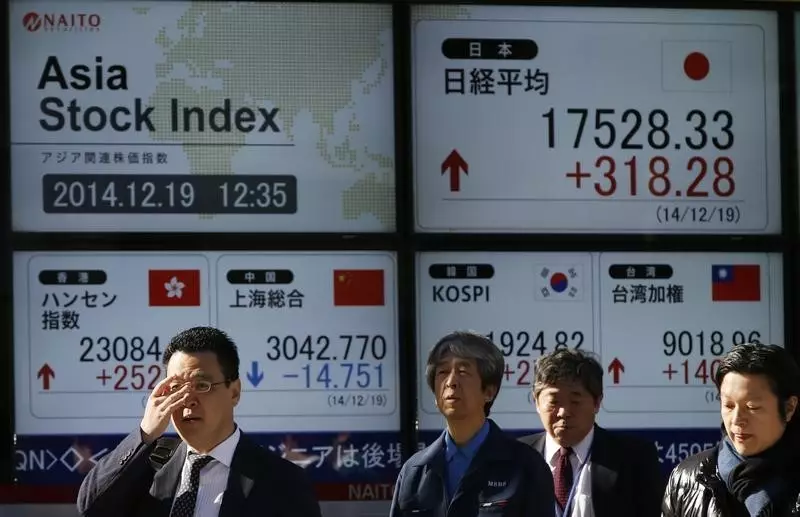As 2024 drew to a close, Asian stock markets exhibited a noticeable downturn, mirroring the lackluster performance observed on Wall Street. This decline was particularly evident following a disappointing year-end rally, often referred to as a “Santa Rally.” The optimism usually associated with the holiday season failed to materialize, contributing to an overall negative sentiment permeating the trading atmosphere across major Asian exchanges. Significant holidays in most countries, including Japan and New Zealand—where stock trading ceased for the day—amplified this trend, creating an environment of uncertainty and caution as investors entered the new year.
The ripple effects of the U.S. market’s decline were instantly felt in Asian trading sessions, with futures hinting at further deterioration. U.S. stock index futures, which declined significantly, linked investors’ anxiety to broader economic indicators and geopolitical uncertainties, leaving traders apprehensive about upcoming trends in the market.
Among the key players, China’s stock market experienced notable setbacks. The Shanghai Shenzhen CSI 300 index dropped by 1.3%, with the Shanghai Composite index following suit, decreasing by 0.9%. This downturn can be attributed to disappointing manufacturing data that surfaced detailing a slower-than-expected growth rate in December. The private purchasing managers’ index (PMI) results revealed a lack of momentum that is often anticipated from stimulus measures, raising concerns about the sustainability of China’s economic recovery. Compounding the issue, government data corroborated these findings, confirming that the expansion of the manufacturing sector failed to meet market expectations and hinted at diminishing returns from previously enacted stimulus efforts.
Investors are now cautiously awaiting clearer signals from Beijing regarding potential fiscal policies aimed at reviving economic growth. Speculation surrounding increased government spending has emerged, but uncertainty looms over the efficacy of such measures to counterbalance the economic headwinds currently faced.
In Hong Kong, the Hang Seng index bore the brunt of these economic shifts, plunging an alarming 1.7%. A significant contributor to this was the sharp decline in shares of Sun Art Retail, which dropped over 30% following news that Alibaba intended to divest its majority stake for $1.6 billion. This move, accompanied by trepidation over retail and consumption trends, signifies the challenges faced by companies within a tight economic circle.
Contrastingly, Singapore’s Straits Times Index remained relatively stable amid the chaos, reflecting a muted response to the perceived economic headwinds. However, the reassurance was short-lived, as new data revealed that Singapore’s economy expanded a meager 0.1% in the fourth quarter of 2024, starkly missing analyst expectations of a 2% growth. Although the annual growth rate exceeded 4%, attributing resilience to the financial sector, persistent challenges in manufacturing—particularly in electronics—sowed seeds of doubt regarding long-term sustainability.
Increasing global uncertainty is exacerbated by international trade tensions, particularly with the incoming U.S. administration signaling intentions to impose trade tariffs on China. This looming prospect of a U.S.-China trade war casts a shadow over market forecasts, further contributing to the prevailing pessimistic sentiment among investors in the Asian region.
Additionally, domestic tensions within South Korea further complicate the market landscape. The KOSPI index showed little movement amidst a backdrop of political strife, following the controversial impeachment of President Yoon Suk Yeol amid charges of insurrection and abuse of power. Such developments not only disrupt economic stability but also deter investor confidence, further entrenching market unease.
As trading resumes in the new year, participants in the market will need to navigate these intertwined complexities, assessing economic signals and political developments to define their strategies moving forward. The interplay of local and global factors sets the stage for a volatile start to 2025, urging analysts and investors to remain vigilant.

